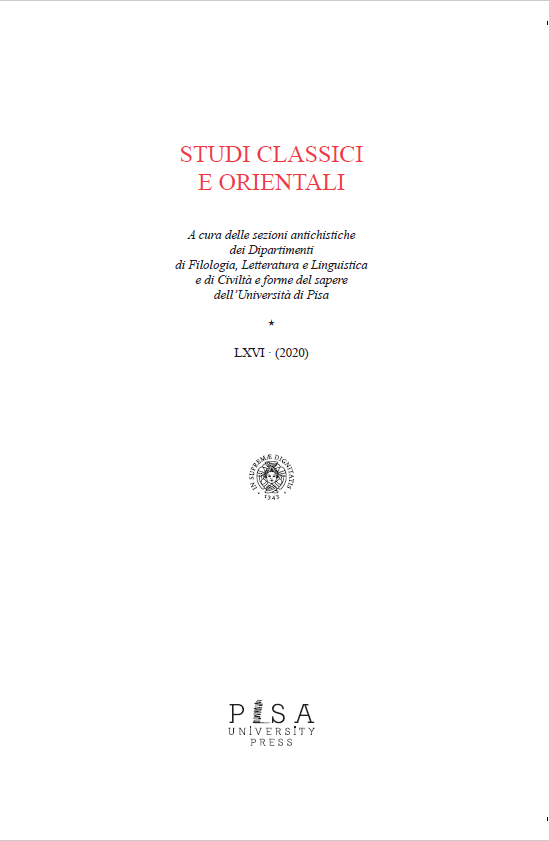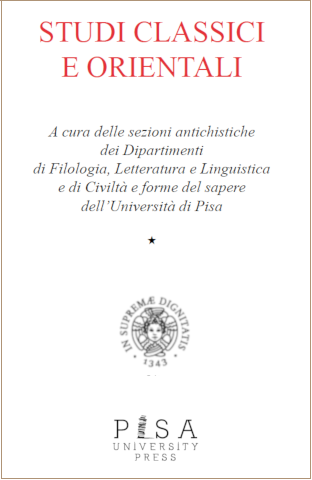Alle origini della poetica consolatoria tra epos e tragedia
Parole chiave:
Rhapsodic poetry, tragedy, aesthetic and consolatory function of poetryAbstract
This paper takes its cue from Eur. Medea 190-203, a polemic statement focusing on the hedonistic conception of poetry and in particular on convivial poetry, a pleasure considered superfluous in comparison with that of the banquet. Instead, the passage claims the value of poetry comforting and healing pain, as Euripides suggests in his late tragedy, The Trojan Women. This perspective is framed in the debate with Homeric epic, stating the essence and task of the poetry in the delight of the listeners. Thus emotional intensity and deep involvement are constantly presented as coexistent, along with the pleasure and ordeal of listening. Nevertheless, the aesthetic pleasure turns to profound personal pain of those listeners personally involved in the narratives of the aedic performance, as Penelope in the first book of the Odyssey and Ulysses in the eighth. Instead, this Euripidean conceptualisation on the role of poetry features a strong thematic affinity with the poetics of the Hesiod’s Theogony.



